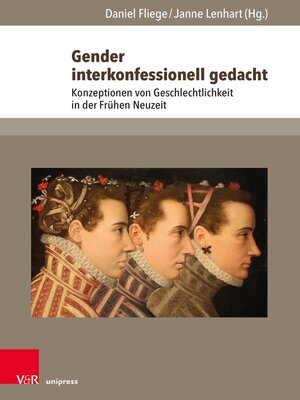Gender interkonfessionell gedacht
ebook ∣ Konzeptionen von Geschlechtlichkeit in der Frühen Neuzeit · The Early Modern World
By Daniel Fliege

Sign up to save your library
With an OverDrive account, you can save your favorite libraries for at-a-glance information about availability. Find out more about OverDrive accounts.
Find this title in Libby, the library reading app by OverDrive.



Search for a digital library with this title
Title found at these libraries:
| Library Name | Distance |
|---|---|
| Loading... |
Die Reformation markiert einen Aufbruch, der Frauen neue Handlungsmöglichkeiten eröffnete und Vorstellungen der Geschlechterordnung sowie der Rollen von Männern und Frauen, Müttern und Vätern, Eheleuten und der Familie wandelte. Der Band nimmt daher nicht nur Konzepte von Weiblichkeit in den Blick, sondern auch Männlichkeit, Ehe und Familie. Der Schwerpunkt liegt darauf, diese Phänomene in Hinblick auf unterschiedliche künstlerische und mediale Repräsentationsformen von Geschlechtlichkeit in konfessionellen Kontexten zu erkunden. Als gemeinsamer methodischer Zugriff dient dabei das Konzept der Interkonfessionalität: So sollen Durchlässigkeiten zwischen den Konfessionen und konfessionsübergreifende Konstruktionen von Geschlechtlichkeit in der Frühen Neuzeit erfasst werden. The Reformation marks a time of change that opened up new possibilities for women to act and transformed ideas about the order and coexistence of gender and the roles of men and women, mothers and fathers, husbands and wives, and the family. The volume therefore explicitly takes into account not only concepts of femininity, but also masculinity, marriage, and family. The main focus of the volume is to explore these phenomena in terms of different artistic and medial forms of representation of gender in denominational contexts. The concept of interconfessionality serves as a common methodological approach: in this way, permeabilities between denominations and cross-denominational constructions of gender in the early modern period are explored.







